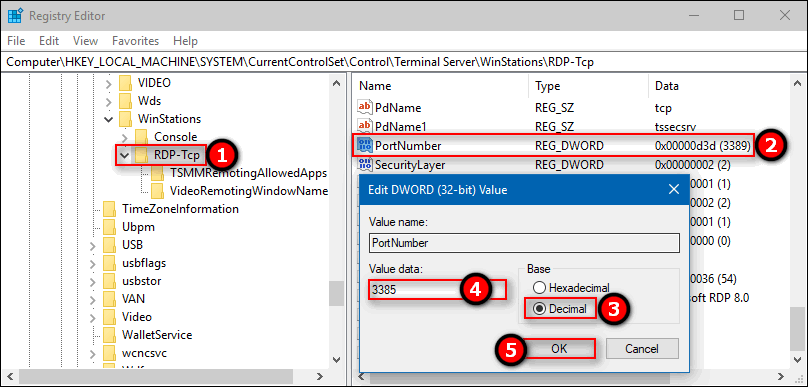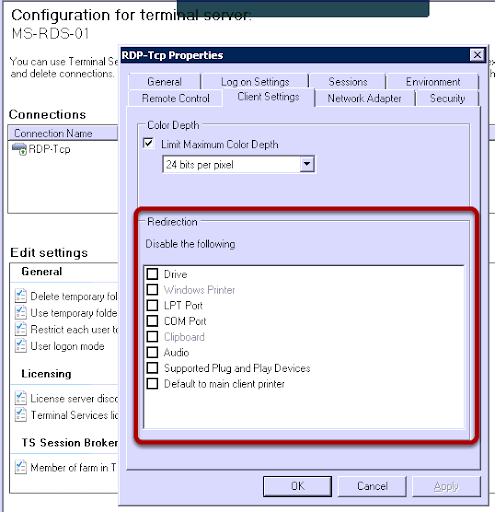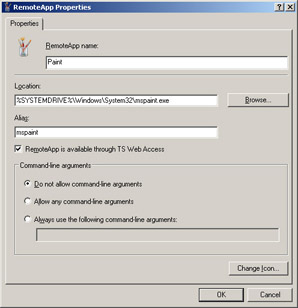
Then Login using new port number using :ZZZZ where ZZZZ is new RDP listening port – for example, 250.197.92.199:ZZZZ (and also test that 3389 to confirm it won’t work).You can compare these new rules to the existing rules in the firewall. Netsh advfirewall firewall add rule name=”Remote Desktop (UDP-In) 35000″ dir=in localport=35000 protocol=udp action=allow Netsh advfirewall firewall add rule name=”Remote Desktop (TCP-In) 35000″ dir=in localport=35000 protocol=tcp action=allow For example, in a administrative command prompt, type this to create two new inbound rules (tcp & upd) where 35000 is the new port you used in the registry change:
#Windows terminal services default port windows#

Type the new port number, and then click OK.

Enter a unique name and optionally a description for the resource profile. Select Windows Terminal Services from the Type list.
#Windows terminal services default port mac#
If you have MAC users, you should verify if the RD Client for MACs support a port other than 3389. Or select an existing profile from the list. And remember that end-users will need to add the new port # to the IP address/computer name when logging in, such as 123.456.78.888 :5555 where the new listening port is 5555. **Remember to create new firewall rules to allow the new port number so you don’t accidently lock yourself out.

Change RDP Listening Port from default 3389Ĭhanging the RDP listening port to a non-default port may not defeat a determined hacker but it should reduce attacks from automated bots.


 0 kommentar(er)
0 kommentar(er)
